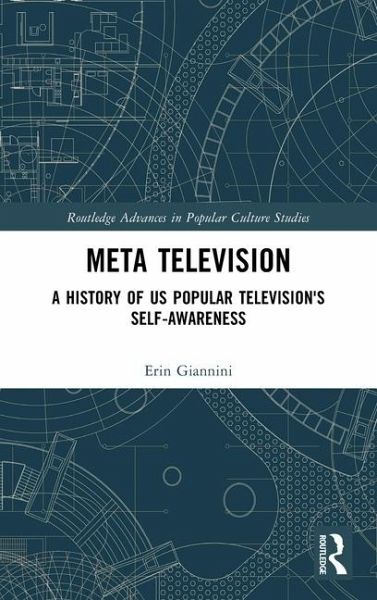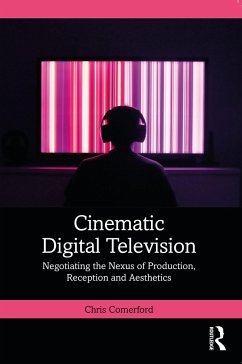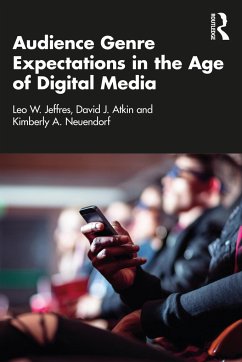
Meta Television
A History of US Popular Television's Self-Awareness
Versandkostenfrei!
Versandfertig in 6-10 Tagen
144,99 €
inkl. MwSt.
Weitere Ausgaben:

PAYBACK Punkte
72 °P sammeln!
The idea of metatextuality is frequently framed as a recent television development and often paired with the idea that it represents genre exhaustion. US television, however, with its early "live" performances and set-bound sitcoms, always suggested an element of self-awareness that easily shaded into metatextuality even in its earliest days. Meta Television thus traces the general history of US television's metatextuality throughout television's history, arguing that TV's self-awareness is nothing new-and certainly not evidence of a period of aesthetic exhaustion-but instead is woven into bot...
The idea of metatextuality is frequently framed as a recent television development and often paired with the idea that it represents genre exhaustion. US television, however, with its early "live" performances and set-bound sitcoms, always suggested an element of self-awareness that easily shaded into metatextuality even in its earliest days. Meta Television thus traces the general history of US television's metatextuality throughout television's history, arguing that TV's self-awareness is nothing new-and certainly not evidence of a period of aesthetic exhaustion-but instead is woven into both its past and present practice, elucidated through case studies featuring series from the 1970s to the present day-many of which have not been critically analyzed before-and the various ways they deploy metatext to both construct and deconstruct their narratives. Further, Meta Television asserts that this re- and de-construction of narrative and production isn't just a reward to the savvy and/or knowledgeable viewer (or consumer), but seeks to make broader points about the media we consume-and how we consume it.
This book explores the ways in which the current metatextual turn, in both the usual genres in which it appears (horror and sci-fi/fantasy) and its movement into drama and sitcom, represents the next turn in television's inherent self-awareness. It traces this element throughout television's history, growing from the more modest reflexivity of programs' awareness of themselves, as created objects in a particular medium, to the more significant breaking of the fictive illusion and therefore the perceived distance between the audience and the series. Erin Giannini shows how the increased currency of metatextual television in the contemporary era can be tied to a viewership well-versed in its stories and production as well as able and willing to "talk back" via social media. If television reflects culture to a certain extent, this increased reflexivity mirrors that "responsive" audience as a consequence of the lack of distance that metafiction embraces.
As Robert Stam traced the use-and implications-of reflexivity in film and literature, this book does the same for television, further problematizing John Ellis's glance theory in terms of both production and spectatorship.
This book explores the ways in which the current metatextual turn, in both the usual genres in which it appears (horror and sci-fi/fantasy) and its movement into drama and sitcom, represents the next turn in television's inherent self-awareness. It traces this element throughout television's history, growing from the more modest reflexivity of programs' awareness of themselves, as created objects in a particular medium, to the more significant breaking of the fictive illusion and therefore the perceived distance between the audience and the series. Erin Giannini shows how the increased currency of metatextual television in the contemporary era can be tied to a viewership well-versed in its stories and production as well as able and willing to "talk back" via social media. If television reflects culture to a certain extent, this increased reflexivity mirrors that "responsive" audience as a consequence of the lack of distance that metafiction embraces.
As Robert Stam traced the use-and implications-of reflexivity in film and literature, this book does the same for television, further problematizing John Ellis's glance theory in terms of both production and spectatorship.














